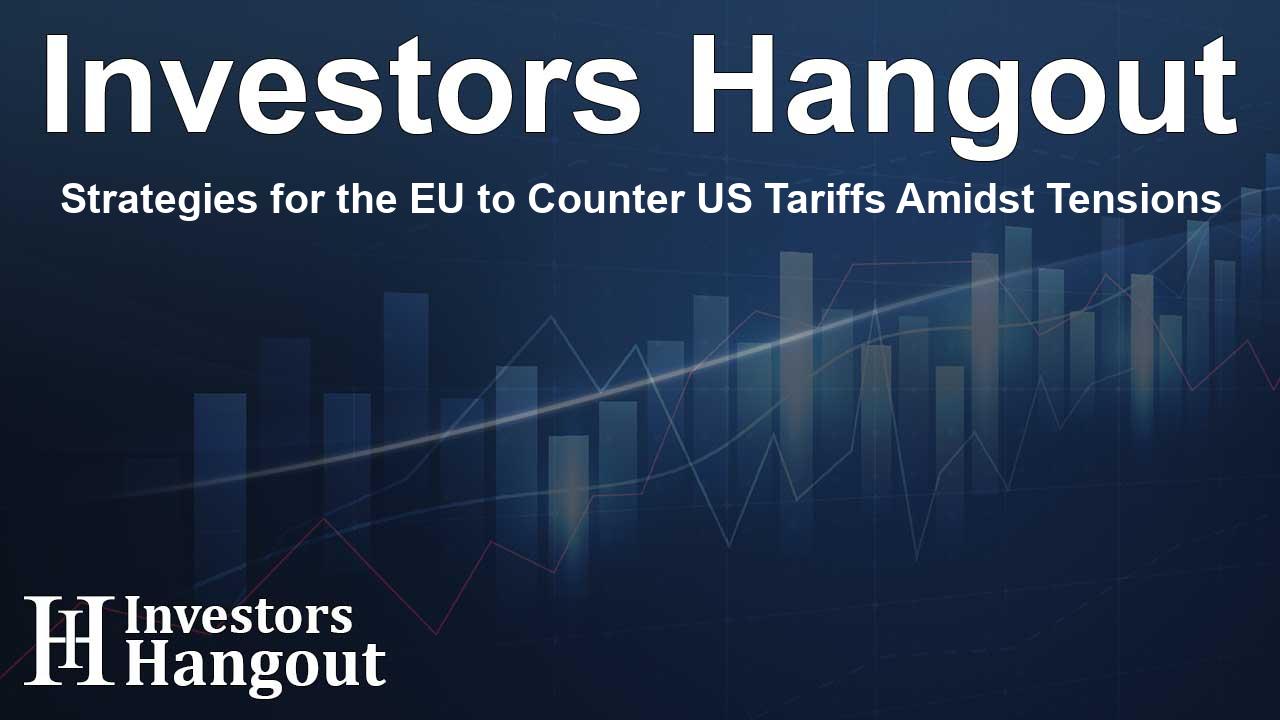Strategies for the EU to Counter US Tariffs Amidst Tensions

Potential EU Responses to US Tariffs
The European Union (EU) faces significant pressure as it contemplates how to respond to the proposed import tariffs from the US. Analysts from Goldman Sachs outline three potential strategies the EU could adopt to navigate this complex landscape.
Understanding the Tariff Landscape
Recently, the Trump administration hinted at imposing extensive tariffs on imported goods, with economists suggesting that these could be used as leverage in trade negotiations. One possibility could involve a 60% tariff on goods coming from China and a 25% surcharge on imports from Canada and Mexico. Additionally, a 10% tariff across the board could place considerable strain on global trade.
Option One: Engaging in Retaliation
Goldman Sachs' analysts propose that the EU's first option could be to initiate a tit-for-tat response by imposing tariffs on a broader array of products. This action would echo the EU's earlier countermeasures during past trade disputes with the US, which included a range of goods from sports equipment to various paper products.
The analysts observe that a quick retaliatory action by the EU is likely as soon as US tariffs are enacted. However, the timing and nature of this escalation into a potential trade war may depend on whether these tariffs are implemented in accordance with WTO guidelines, or if the US chooses a more unilateral approach.
Exploring a Shift in Trade Policy
Another alternative for the EU could involve re-evaluating its traditional open trade stance. Analysts believe that the EU might consider lessening its commitment to free trade in response to the US policies, particularly regarding imports from China. Current investigations within the EU predominantly focus on Chinese products, particularly those sold at undervalued prices.
However, this shift carries risks for the EU, as it could provoke a counterattack from China, risking major trade disruptions. Thus, carefully assessing the long-term repercussions of any such defensive measures is crucial for European policymakers.
Option Three: Concession Through Dialogue
Rather than escalating tensions further, the EU might choose a more conciliatory approach towards the US, possibly by increasing its purchases of American natural gas and oil. This strategy has been suggested as a way to engage positively with the Trump administration, potentially helping to ease trade barriers.
While some EU officials express concerns that this might increase import costs, Goldman Sachs' analysis indicates that Europeans may find a feasible path forward. By arranging new long-term contracts for liquefied natural gas with US facilities, Europe could meet these demands without severely impacting its economy.
Military Spending Insights
The need for increased military spending as part of a broader strategy to reduce US tariffs has been flagged, but it presents its own challenges. The analysts indicate that unless EU member states reassess their fiscal priorities, significantly increasing defense budgets may be difficult. However, a gradual increase in defense expenditures is anticipated over the coming years, even if the shift may be incremental.
Conclusion: Preparing for Retaliation
With the possibility of Trump proceeding with these tariffs, analysts expect the EU to respond swiftly by imposing higher import duties on US consumer goods. Importantly, the overall risk of sliding into a trade war could diminish should Europe act decisively and in a timely manner regarding fiscal adjustments.
Frequently Asked Questions
What are the proposed US tariffs?
The proposed US tariffs include a 60% tariff on Chinese goods and a 25% surcharge on Canadian and Mexican products, along with a potential 10% global import duty.
How might the EU respond to these tariffs?
The EU could retaliate with tariffs on US goods, shift its trade policies towards China, or make concessions such as increasing its imports of US natural gas.
What challenges might the EU face in increasing military spending?
The EU may find it challenging to boost military spending unless member countries revise their fiscal strategies to prioritize defense budgets.
Is there a risk of a trade war?
Yes, a trade war is possible if both the US and EU enact retaliatory tariffs; however, clearly defined fiscal adjustments can help minimize this risk.
What does Goldman Sachs suggest about the EU's strategy?
Goldman Sachs suggests that the EU should consider a range of responses, including countering US tariffs and modifying its free trade approach towards global imports.
About The Author
Contact Hannah Lewis privately here. Or send an email with ATTN: Hannah Lewis as the subject to contact@investorshangout.com.
About Investors Hangout
Investors Hangout is a leading online stock forum for financial discussion and learning, offering a wide range of free tools and resources. It draws in traders of all levels, who exchange market knowledge, investigate trading tactics, and keep an eye on industry developments in real time. Featuring financial articles, stock message boards, quotes, charts, company profiles, and live news updates. Through cooperative learning and a wealth of informational resources, it helps users from novices creating their first portfolios to experts honing their techniques. Join Investors Hangout today: https://investorshangout.com/
The content of this article is based on factual, publicly available information and does not represent legal, financial, or investment advice. Investors Hangout does not offer financial advice, and the author is not a licensed financial advisor. Consult a qualified advisor before making any financial or investment decisions based on this article. This article should not be considered advice to purchase, sell, or hold any securities or other investments. If any of the material provided here is inaccurate, please contact us for corrections.
